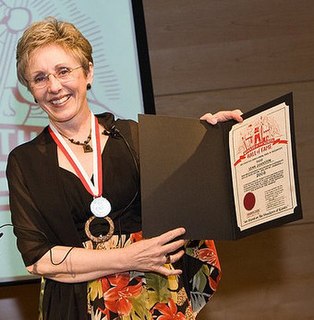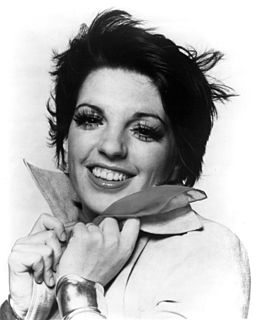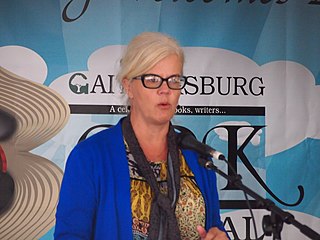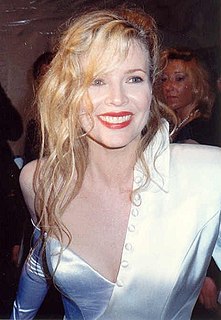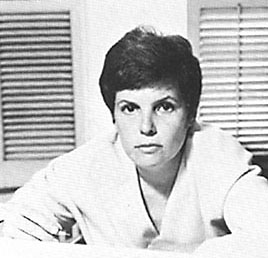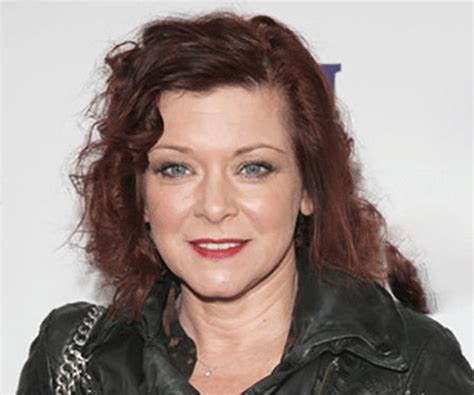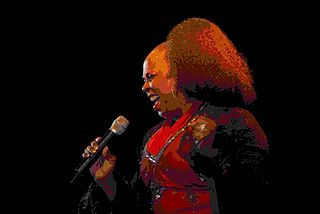A Quote by Brian Stokes Mitchell
My mother was the first African-American policewoman in Seattle - recruited, actually - and she did it for only 2 years, as she did not want to carry a gun. She worked mostly on domestic disturbances. The NAACP wanted her to do it. She did not actually have the temperament to be a cop - she was very sweet. She had a Masters in social work.
Related Quotes
The doctor's wife wasn't a bad woman. She was sufficiently convinced of her own importance to believe that God actually did watch everything she did and listen to everything she said, and she was too taken up with rooting out the pride she was prone to feeling in her own holiness to notice any other failings she might have had. She was a do-gooder, which means that all the ill she did, she did without realizing it.
My mother wanted to be a mother. That's the only thing she wanted from the bottom of her heart. She didn't want to be the number one actress - which she was - and she didn't want to be this great legend. All she wanted to be was a mother and she did but God took her away. So I always will empathise and sympathise with women.
But what I kept wondering about is this: that first second when she felt her skirt burning, what did she think? Before she knew it was candles, did she think she'd done it herself? With the amazing turns of her hips, and the warmth of the music inside her, did she believe, for even one glorious second, that her passion had arrived?
She (Judy Garland) was a friend of mine, a trying friend, but a friend. That is what I tell myself: She did everything she ever wanted to do. She never really denied herself anything for me. See, I say, she had a wonderful life; she did what she wanted to do. And I have no right to change her fulfillment into my misery. I'm on my own broom now.
One thing I did have under my belt was, my mother lost her mother when she was 11. She mourned her mother her whole life and made my grandmother seem present even though I never met her. I couldn't imagine how my mom could go on but she did, she took care of us, she worked two jobs and had four children. She was such a good example of how to conduct oneself in a time of grief. When I lost my husband, I tried to model myself as much as I could on her.
Annabel looked down. Her hands were shaking. She couldn't do this. Not yet. She couldn't face the man she'd kissed who happened to be the heir to the man she didn't want to kiss but whos she probably was going to marry. Oh yes, and she could not forget that if she did marry the man she didn't want to kiss, she was likely to provide him with a new heir, thus cutting off the man she did want to kiss.
I've known Lisa Lampanelli for quite some time. We did the Shatner roast together. Lisa didn't know Shatner, but she's a popular roaster, so she was invited to do it, and she is fantastic. Actually, despite her public image, she's a very sweet lady and very sensitive. She cries very easily. Most people don't know that.
She didn't care anymore... and she got no pleasure from the work she did, but she did it. Everything bored her. She found that when she didn't have a notebook it was hard for her to think. The thoughts came slowly, as though they had to squeeze through a tiny door to get to her, whereas when she wrote, they flowed out faster than she could put them down. She sat very stupidly with a blank mind until finall 'I feel different' came slowly to her mind. Yes, she thought, after a long pause. And then, after more time, 'Mean, I feel mean.
[Short Talk on Sylvia Plath] Did you see her mother on television? She said plain, burned things. She said I thought it an excellent poem but it hurt me. She did not say jungle fear. She did not say jungle hatred wild jungle weeping chop it back chop it. She said self-government she said end of the road. She did not say humming in the middle of the air what you came for chop.




